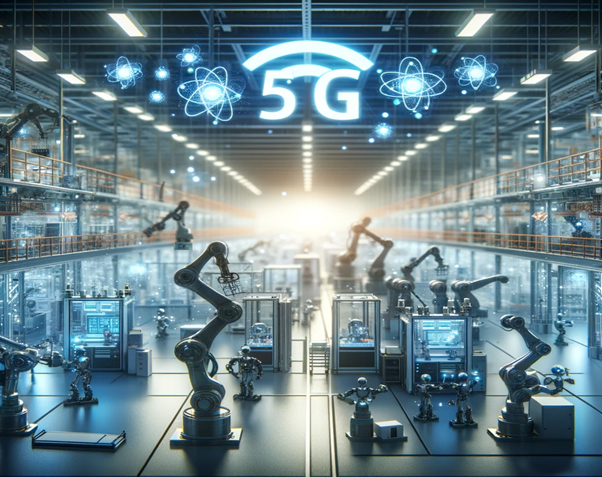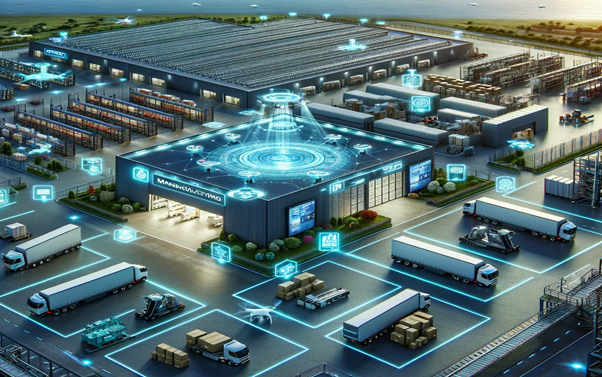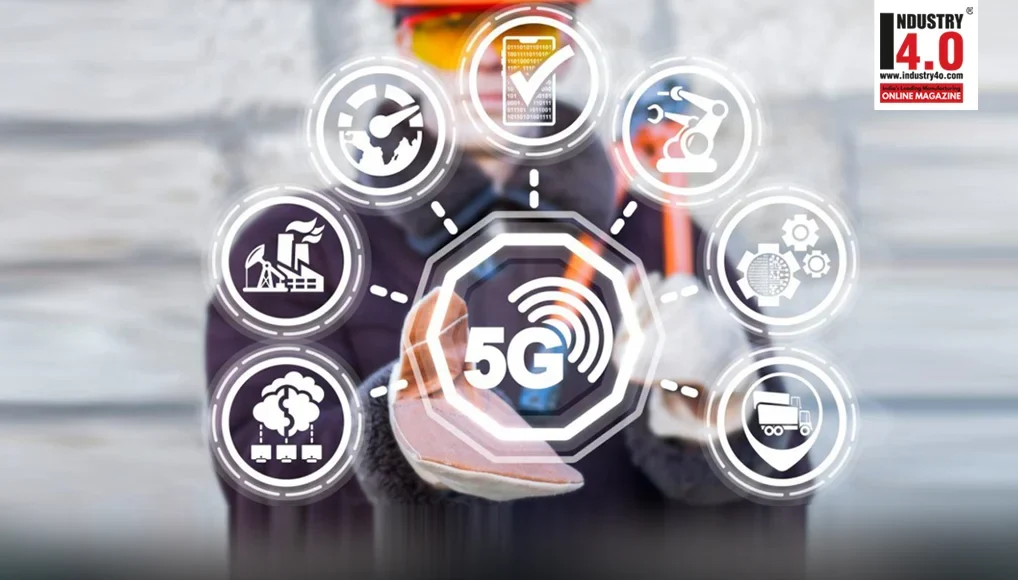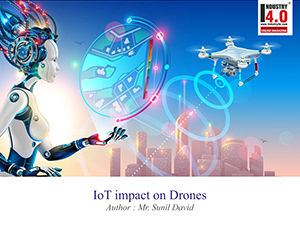Redefining the Manufacturing Landscape: The Transformative Power of 5G Connectivity
Manufacturing organisations across the world are adopting Digital Technologies at scale to drive better business outcomes. Frequent supply chain disruptions, focus on environmental sustainability with a specific focus to reduce CO2 emissions to comply with regulations, a hyper- competitive landscape and constantly changing customer demands are challenging organisations around the world, and hence the Future factories must address these challenges to ensure a sustainable future. With the advent of Industry 4.0, there has been a fundamental shift in the way global manufacturing and supply chain processes work. Reliable, high speed and secure connectivity like 5G, availability of real-time data being extracted from Industrial assets using IOT sensors, enhanced data processing and diagnostic capabilities with Analytics and AI layers are enabling Manufacturing organisations to improve manufacturing flexibility and reduce system complexity.
While improving operational excellence and reducing costs have been fundamental drivers for Digital Technology adoption, the focus of manufacturing companies is now shifting towards sustainability, customer centricity, and faster time to market . Manufacturing companies are also building strategies to drive value by investing in upskilling and reskilling the workforce which is extremely important as they need to harness the power of these Digital technologies like IOT, AI, AR/VR etc powered by 5G networks in order to be more productive and derive maximum business value.
5G is a key enabler for the Digital transformation of manufacturing processes, providing faster, more reliable, and low-latency connectivity compared to previous generations of wireless technology. It has the potential to greatly optimize manufacturing productivity by enabling faster and more reliable communication, enhancing automation and robotics, facilitating real-time data analytics, and improving overall operational efficiency
The key features of 5G that can impact Manufacturing include:
Faster and More Reliable Communication: The extremely high reliability (99.99999%) offered by 5G can enable real-time control of machines and processes, which is essential for mission-critical applications in manufacturing.
Ultra-low latency: 5G networks offer significantly reduced latency ( < 10 ms) , enabling near real-time communication. This allows for quick response times and immediate feedback, crucial for manufacturing processes that require precise control and coordination.
High-speed data transfer: 5G provides significantly higher data transfer speeds ( ranging from 400 Mbps to 10 Gbps or higher ) , enabling rapid exchange of large volumes of data. This facilitates faster information sharing between different parts of the manufacturing process, optimizing productivity.
Reduced network congestion: 5G networks can handle a much higher number of devices simultaneously, reducing network congestion and ensuring reliable connectivity for a wide range of manufacturing applications.
Let us look at some of the specific areas within Manufacturing where 5G will make a profound impact :
Enhanced Automation and Robotics:

Increased connectivity for robots and machines: 5G networks provide seamless connectivity, allowing robots and machines to communicate and coordinate effectively. This enables the integration of smart devices and IoT (Internet of Things) technologies, enhancing automation and optimizing manufacturing workflows.
Real-time control and monitoring: With 5G, manufacturers can remotely control and monitor machines and robots in real-time. This enables immediate adjustments, troubleshooting, and preventive maintenance, minimizing downtime and maximizing productivity.
German aircraft engine manufacturer MTU Aero Engines has been testing 5G-based production technology for increasing efficiency in their operations. They pilot-tested its applications on blade-integrated disks (blisk), which are high-tech components that are used for jet engines. These are milled out of solid pieces of metal, are extremely complex, and require the utmost and precise accuracy to produce. The total lead time to create a blisk is around 3 to 4 months. With new 5G-enabled production technology integrated with IoT sensors , they were able to create a fully automated factory that could be controlled and managed through a single network . This resulted in a reduction in the time for the process design phase by almost 75%.
Sundaram Clayton one of India’s well known Automotive components manufacturers are experimenting with using private 5G networks to monitor and control Autonomous Mobile Robots ( AMRs ) inside their plant in Chennai in near real time. The AMRs augment the human workers in the shopfloor and help improve their productivity.
Collaborative robots (Cobots): 5G networks support low-latency communication between humans and robots, enabling safe and efficient collaboration. Cobots can work alongside human operators, enhancing productivity, and handling repetitive or hazardous tasks.
The BMW Mini factory in the UK has been using a 5G powered Cobot to transform its riveting process. In the past , the task was performed by workers. The workers would initially load the rivets and then do the actually riveting. After they employed collaborative robots, the tasks are done side by side. The human employee loads one side of the jig while the Cobot begins to work on the other.
Real-Time Data Analytics:
Edge computing capabilities: 5G networks facilitate edge computing, which allows data processing and analysis to be performed closer to the source. This reduces latency, enabling real-time data analytics and decision-making.
Rapid data processing and analysis: With the high data transfer speeds of 5G, manufacturing data can be quickly collected, processed, and analyzed. Real-time insights enable proactive decision-making, improving efficiency, and reducing errors.
Predictive maintenance and quality control: 5G networks enable continuous monitoring of equipment and products, facilitating predictive maintenance and quality control. By analyzing the large volumes of data that gets streamed in real-time , manufacturers can identify potential anomalies , optimize maintenance schedules, and ensure that the product quality is consistent.
Operational Efficiency Improvements:
Improved asset tracking and management: 5G networks enable precise tracking of assets throughout the manufacturing process, reducing the time spent searching for tools, components, or finished products. This streamlines operations and improves efficiency.
Enhanced supply chain visibility: With 5G connectivity, manufacturers can achieve better visibility across the entire supply chain, from raw materials to the end product. Real-time tracking and monitoring enable timely adjustments, reducing delays and improving overall supply chain efficiency.
A good example of how 5G technology is being leveraged in Supply chain and Logistics is by the BMW Group at the Landshut supply centre in Europe . The Robot in the Cloud initiative uses self-driving forklift trucks for loading and unloading trucks and for managing a block storage facility. Cameras that are integrated into the forklifts serve as the basis for calculating autonomous runs. They simultaneously calculate driving movements and determine coordinates with near millimetre precision. The calculations are outsourced to a high-performance data cloud using high speed 5G networks . Thus , complex processors and the corresponding hardware no longer have to be installed within the vehicles themselves. Optimal control of forklifts by the Cloud reduces downtimes for logistics vehicles and enhances the performance and efficiency of the entire logistics system.

Agile manufacturing and flexible production lines: 5G networks enable quick reconfiguration and adaptation of production lines. With real-time communication and data analytics, manufacturers can respond rapidly to changing demands, customize products more efficiently, and optimize resource allocation. The Mahindra & Mahindra Plant in Chakan, Pune have deployed a captive private 5G network that helps in providing improved speeds for software flashing which is a very important and critical operations for all their vehicle dispatches. Low latency and high speeds ensure multiple software flashing sessions in parallel which goes a long way in improving productivity and efficiency of Managers inside the plant.
Conclusion
The advent of 5G technology has the potential to usher in the age of Industry 5.0 by revolutionizing the manufacturing sector. With its ultra-fast and reliable connectivity, 5G enables real-time communication and seamless data exchange between machines, equipment, and personnel. By leveraging the transformative power of 5G technology, the manufacturing industry can embrace Industry 5.0, characterized by smart, connected systems and advanced automation. The Industry 5.0 era emphasizes the technology enabled collaboration between humans and machines to augment capabilities of the humans and create a more agile, flexible, and sustainable manufacturing processes. 5G technology can thus act as a catalyst for the convergence of digital technologies and manufacturing, enabling real-time connectivity, IoT integration, AR/VR applications, collaborative robotics, edge computing, and supply chain optimization. These advancements set the stage for Industry 5.0, where manufacturers can unlock new levels of productivity, efficiency, and innovation, shaping the future of manufacturing.
About the Author :

Mr. Sunil David
Digital Technology Consultant,
Ex – Regional Director – IOT , AT&T India.
Mr. Sunil David, a well known IOT Industry Thought leader in India has 28 years of experience in the IT and Telecom industry of which close to 20 years was with AT&T, one of the top Communication Service Providers of the World and one of the top 20 companies in the Fortune 500 list 2021. Until recently, Sunil was the Regional Director ( IOT ) India and ASEAN for AT&T India where he was responsible for building the IOT strategy, Sales, Business Development and also worked on building a robust IOT partner ecosystem. He was also actively involved in a number of Marketing initiatives to help enhance the AT&T brand in the IOT space. In his new phase of life, Sunil will be Advising and Consulting AI and IOT Startups that are aspiring for the next level of growth.
Mr. Sunil David has been a recipient of a number of Awards and Recognitions including 6 awards in 2021 and 3 this year from various Industry bodies and media conglomerates in recognition for his work in Digital Technology advocacy, Digital Skilling initiatives, contributing his inputs towards IoT policy creation for India and for his contribution to National Inst of Electronics and Info Tech, an Autonomous Scientific Society of MeITY, Ministry of Electronics and IT, Govt of India for contributing his inputs on the syllabus and specific courses in the Emerging tech space ( IOT, Cloud, AI ) that needs to be incorporated into the Curriculum of State and Central Govt Universities. NASSCOM Foundation and IBM India have also planted tree saplings in Sunil’s name for his contribution to the Tech Industry.
Mr. Sunil David is affiliated to several Industry Bodies : – Empaneled as IoT Tech Guru for NASSCOM Women Wizards Rule Tech Program, Telecom Working group Council Member of IET Future Tech Panel, Chair of the Working group of the AI – Networking and Community Enablement Working group constituted by CII, Elite Member and Mentor for CII Institute of Logistics, Member of the National IOT Committee constituted by Internet and Mobile Association of India. ( IAMAI ) etc.
Mr. Sunil David has spoken on a wide and diverse range of topics – Industry 4.0, IOT, AI, Supply Chain Digitalization , Metaverse, Cyber Security, Digital Marketing, Digital Transformation, Future of
Work etc., at more than 150 Industry forums in India and abroad as well as done workshops on IOT for a number of India’s leading Educational institutions including IIM Shillong, IIM Sirmaur, IIM Jammu, IIM Kharagpur, IIT Delhi, ISB Hyderabad, IIT Madras, SITM Pune, Amity University Delhi etc.
Mr. Sunil David has also written a number of articles in the past for various B2B publications, IEEE and Online Media Content providers on topics related to Use of IOT in Shipping industry, Supply Chain Digitalization Industry 4.0, Digital Transformation, Disruptive Technologies, 5G, IOT Platforms and Security etc.
Mr. Sunil David is Bestowed with the following Licenses & Certifications :
https://www.linkedin.com/in/su
He can be contacted at:
Also read Mr. Sunil David earlier article :
















